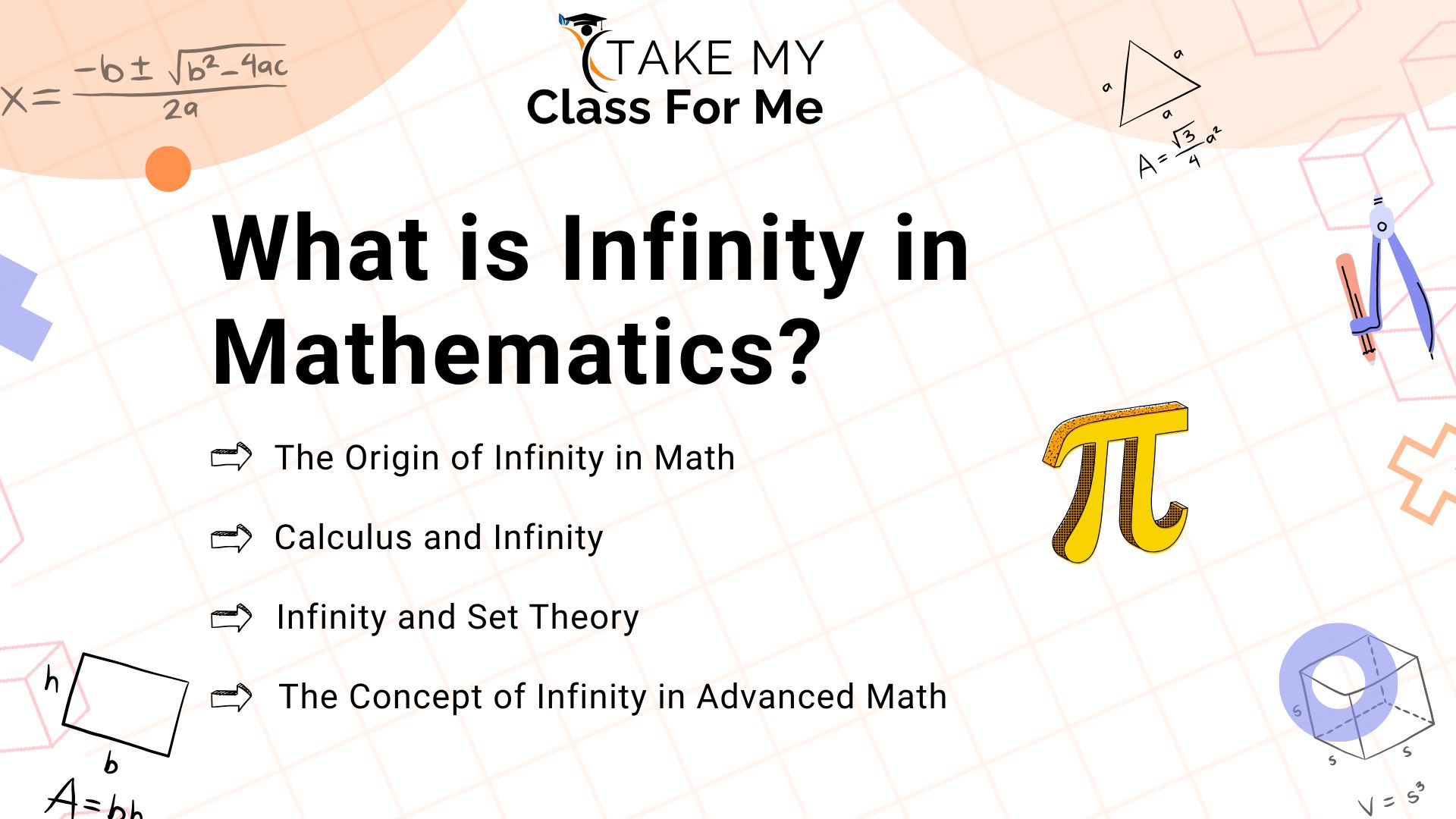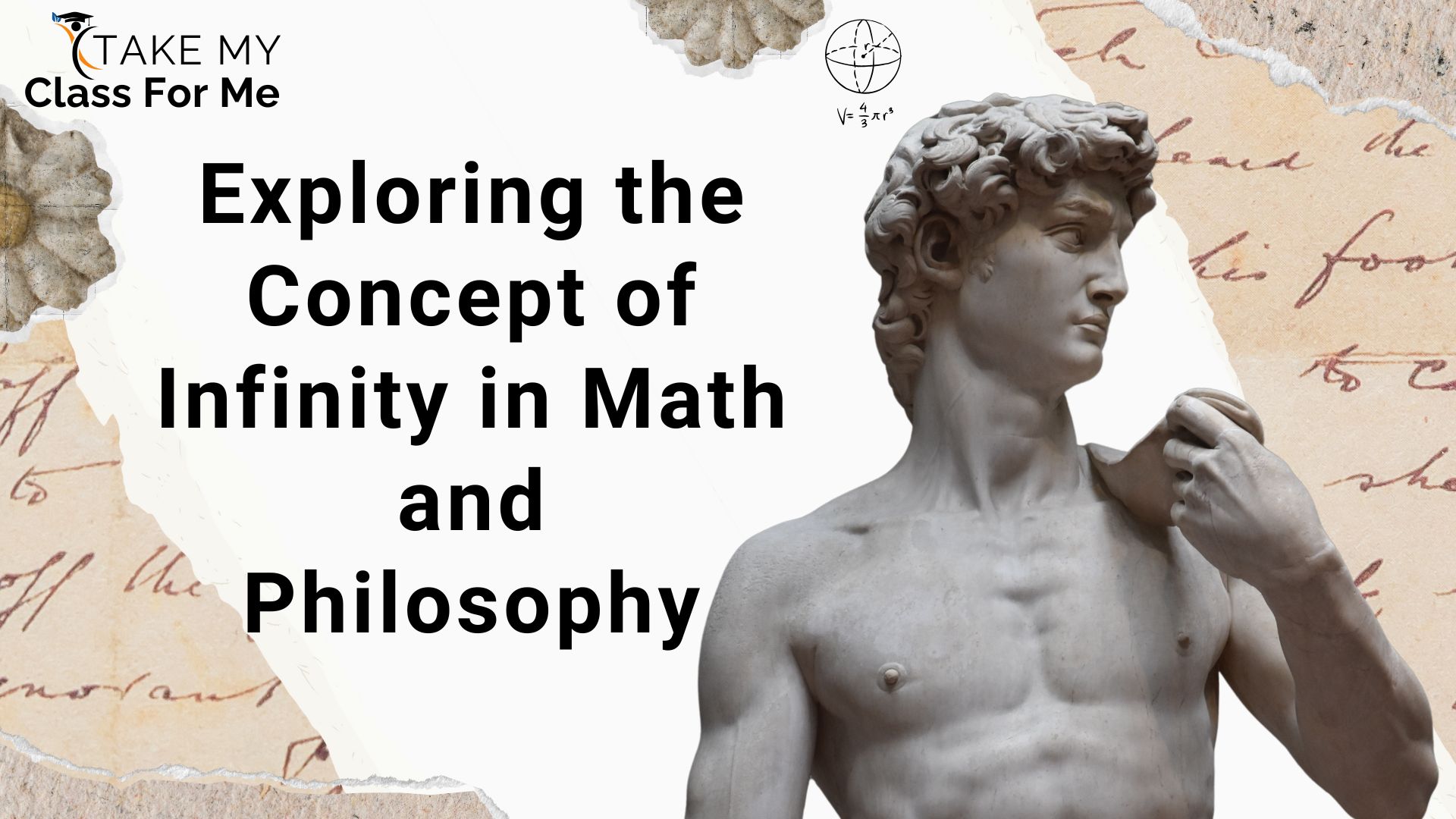This article has been reviewed and updated with current information, new examples, and the latest academic requirements for 2025
Infinity in Math and Philosophy means something that has no end or limit. This idea can be hard for you to think about, but it is a fundamental part of understanding many mathematical and philosophical concepts. It will also challenge your thinking about numbers, existence, the universe, limits, and boundaries.
The concept of infinity has evolved significantly over time. In the past, many philosophers and scientists believed in Aristotle’s idea of potential infinity. It suggested that infinity was more of a possibility rather than an actual reality. However, in the late 19th century, mathematicians like Georg Cantor and Richard Dedekind redefined infinity in the context of set theory. Some areas of study that deal with infinity are mathematics, philosophy, physics, theology, astronomy, and cosmology. People often think of infinity as something without boundaries or limits. But the concept of infinity raises important philosophical questions about existence, knowledge, and the universe. These questions further have an impact on areas such as metaphysics, epistemology, theology, mathematics, and ethics. If you are curious to learn about the concept of infinity in math and philosophy, then read this blog.
An Overview of Infinity
In math and philosophy, ‘finite’ and ‘infinite’ describe different kinds of limits or lack of limits. Finite things have limits or boundaries. For example, if a book has a first page and a last page, then you can count the pages. On the other hand, infinite things have no limits. For example, numbers go on forever: 1, 2, 3, and so on.
Typically, infinity is of different kinds. They are potential infinity and actual infinity. Potential infinity is a never-ending process that can always keep going, but it is not truly infinite. Actual infinity refers to something that is truly endless and exists as a whole.
Understanding the Paradoxical Nature of Infinity
Infinity can lead to different paradoxes. Here are two examples:
Hilbert’s Hotel Paradox
Think of a hotel with an endless number of rooms, and it is fully booked. But the hotel can still accommodate new guests by shifting the existing guests around. This might appear strange because we don’t expect a full hotel to have room for more guests.
Banach-Tarski Paradox
Picture a solid ball. Now, imagine cutting it into pieces and reassembling those pieces into two identical balls of the same size. This might seem impossible because it contradicts our usual understanding of volume and space.
What is Infinity in Western Philosophy?
Here, let us explore how ancient Greek philosophers have defined the concept of infinity in their discussions.
Anaximander: He introduced the concept of the “Apeiron,” meaning the endless. He believed that everything comes from and returns to this infinite, eternal source. This source cannot be defined as a specific element like water or air.
Pythagoras: Pythagoras and his followers believed the universe is based on harmony and numbers. They thought of infinity as something that can keep growing rather than something that is already endless.
Heraclitus: He didn’t directly talk about infinity, but he focused on constant change and flow in the universe. His ideas implied that this process of change is endless.
Plato: Plato explored the concept of infinity in his metaphysical ideas. He distinguished between the world of forms, which is perfect, eternal, and limitless, and the physical world, which is imperfect and limited. Specifically, he examined the limits of human understanding and the idea of infinite regress in dialogues like “Parmenides.”
Aristotle: He analyzed the concept of infinity and concluded that it exists only as a potential, not as an actual reality. He believed infinity is seen in concepts like endless counting or division, but not in the physical world. According to Aristotle, the universe is finite, and there is no actual infinite being in reality.
What is Infinity in Eastern Philosophy?
Ancient Chinese and Indian thinkers have also explored the idea of infinity. But they approached it from different perspectives than the ancient Greeks.
Indian Philosophy
Hindu and Buddhist philosophies often explore the concept of infinity in spiritual and metaphysical contexts. Hinduism’s Vedanta tradition describes Brahman as eternal and endless, while the Rig Veda mentions the cosmos’ boundlessness. Buddhist philosophy, especially Mahayana, explores the concept of infinity through Shunyata, or emptiness, beyond finite limits.
Chinese Philosophy
In Chinese philosophy, Confucianism and Daoism saw infinity in the natural cycles and the Dao. Specifically, Laozi’s Dao De Jing describes the Dao as a limitless, shapeless energy that is the foundation of the universe.
Examining the Philosophical Impact of Infinity
These are the philosophical implications of infinity
Cosmology and Infinity
The concept of infinity is crucial in discussions about the universe’s nature. Some theories suggest the universe is endless in both space and time. This idea sparks debates about whether the universe had a beginning and whether time stretches infinitely. Generally, philosophers and physicists explore these questions about the universe’s nature. They draw on both ancient and modern ideas about infinity from mathematics and philosophy to inform their discussions. An endless universe challenges our understanding of reality.
Metaphysical Infinity
Metaphysicians have long used the concept of infinity to explore big questions about existence, reality, and God. Many believe God is infinite, meaning ‘he has unlimited power, presence, and knowledge’. Some thinkers, like Thomas Aquinas, argue that God’s infinity means ‘he is timeless and all-encompassing’. However, some philosophers wonder if infinity means things stay the same forever or if they keep changing.
What is Infinity in Mathematics?

The mathematical concept of infinity is explained as follows
The Origin of Infinity in Math
Infinity was first explored in math through philosophical ideas. Initially, the Greek philosopher Zeno questioned whether space and time could be divided infinitely. He used paradoxes like ike Achilles and the Tortoise to challenge this idea. Euclid and other geometers have also discussed infinity by considering ideas like lines extending forever.
Calculus and Infinity
In the 17th century, calculus helped mathematicians study infinity in a more organized way. Calculus is a branch of mathematics that focuses on limits. Sir Isaac Newton and Gottfried Wilhelm Leibniz developed calculus. Also, they created methods for handling endless processes, like calculating areas and rates of change.
Infinity and Set Theory
German mathematician Georg Cantor changed the understanding of infinity in the 19th century. He proved that not all infinities are equal, and instead identified two distinct types. They are countable and uncountable infinity. Countable infinity can be counted, like the set of natural numbers, while uncountable infinity is too vast to be counted, like the set of real numbers. Cantor further developed a systematic approach to compare and measure different sizes of infinity.
The Concept of Infinity in Advanced Math
Infinity is a fundamental concept in many areas of mathematics, including physics, topology, and analysis. It will help you understand how things behave when they approach infinite values, and how to calculate areas under curves. Infinity is also being explored in other areas of math, such as computer science, probability, and philosophy. This will help you understand complex ideas in a better way.
Future Trends of the Evolution of Infinity
These are some of the future trends of the evolution of infinity
New Mathematical Theories
You might see a big change in mathematics when new forms of infinity emerge. These new forms might be challenging to traditional set theory. Furthermore, this advancement can lead to exciting research opportunities that could impact your work in computer science, theoretical physics, and beyond.
Changes in Philosophy
The concept of infinity may create interesting discussions in philosophy, especially when you think about the universe, its nature, and your place in it. Philosophers can also explore how infinity relates to the universe and your reality by asking big questions about existence. Hereafter, artificial intelligence will influence how you think about infinity in math.
The Global Impact of Infinity
Currently, people from different fields are working together and sharing ideas worldwide. So, you might see a change in how you understand infinity. For example, researchers in artificial intelligence are still inspired by mathematician Alexander Grothendieck’s work. His ideas, like “topos,” will link different areas of math and could be used in real-life applications. Hence, you will get a better understanding of the concept of infinity.
Wrapping Up
In this blog, we have so far studied the concept of infinity in math and philosophy. If you are still unclear about the infinity-based concepts, send a ‘take my class for me’ request to us. The experts in our team will offer you the best help with math class or philosophy classes. Especially, with the support of our online class experts, you can strengthen your comprehension of the infinity concepts and perform well in exams.





